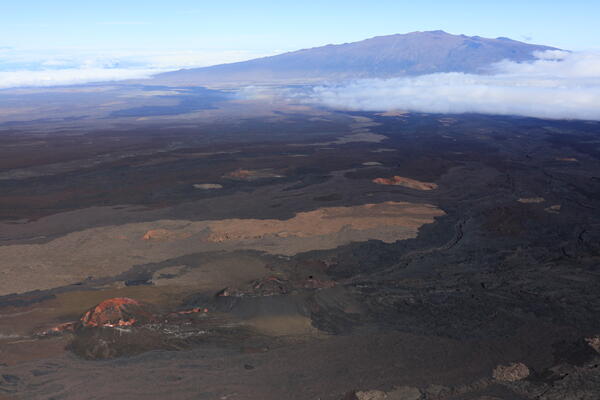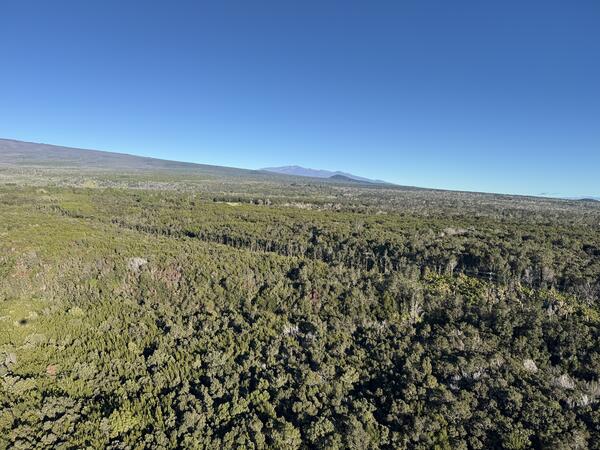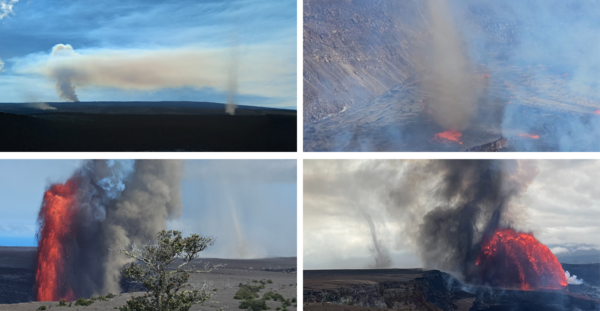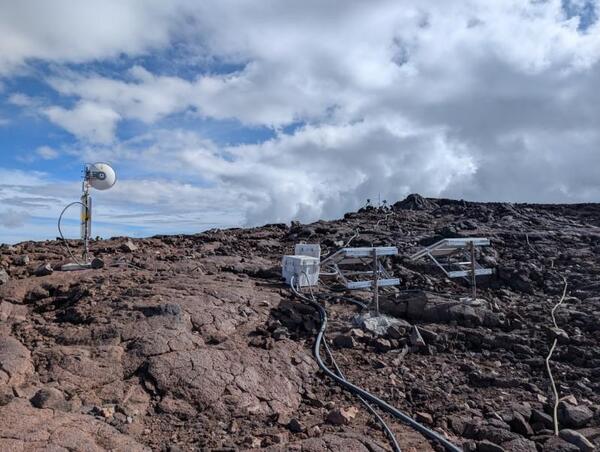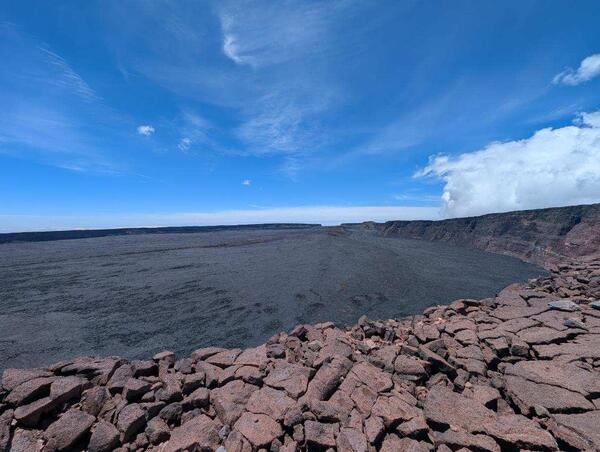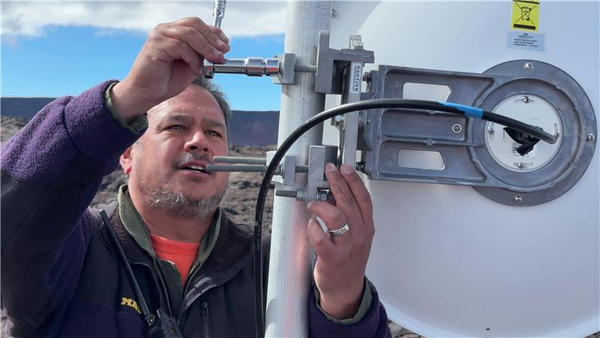December 23, 2025 — Mauna Loa summit and Mauna Kea
December 23, 2025 — Mauna Loa summit and Mauna KeaAt the end of their Mauna Loa summit overflight on December 23, USGS Hawaiian Volcano Observatory geologists passed the 2022 Northeast Rift Zone eruption site. In this photo, an older vent known as Steaming Cone is visible in the lower-left of the frame (red and white colors), with the 2022 fissure 3 cone just to the right of it (black and brown colors).


